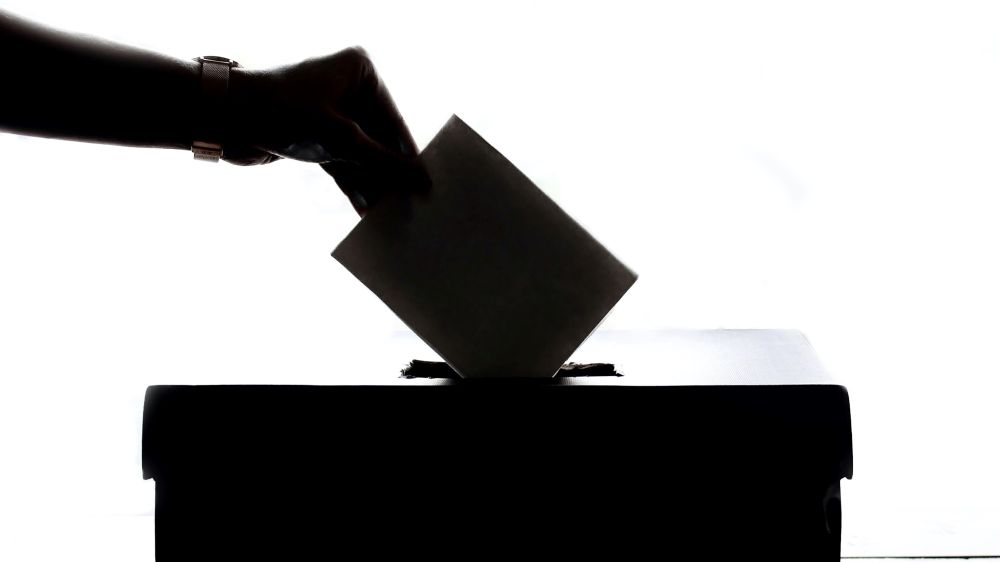How can we explain the rise of the far-right party the Rassemblement National (National Rally)? We argue that the relative electoral success of Marine Le Pen in the 2022 French presidential election can be explained in part by the party’s long-standing “de-demonization” strategy, as well as by external factors contributing to the party’s normalization such as the media, other political parties and, more particularly, the emergence of a new far-right party, Reconquête (Reconquest), led by Éric Zemmour.
Marine Le Pen’s “de-demonization” strategy
To better understand the relative electoral success of Marine Le Pen during the 2022 French presidential election, it is important to understand the “de-demonization” strategy implemented by the Front National party leaders. This strategy first began with Jean-Marie Le Pen when the party was founded (1972), and was more extensively elaborated when Marine Le Pen took over the then-Front National (2011). It involved a long-term process of dissociating the party from the neo-fascist movement Ordre Nouveau (New Order), which participated in the creation of the Front National, in order to be part of the electoral race and diversify the party’s electoral support.
The first step in Marine Le Pen’s strategy to soften the Front National’s image involved getting rid of extremist candidates and supporters (including Jean-Marie Le Pen in 2015, her father and the former party leader) as well as labels of racism, antisemitism and extremism attached to the party. Le Pen then attempted to crystallize those changes by giving the party a new name: the Rassemblement National (2018), expressing the party’s ambition to rally the French and underlining a break with Jean-Marie Le Pen’s presidency. However, this name also recalls the group that the party formed in the National Assembly from 1986 to 1988, the “Front national-Rassemblement national”, thus limiting the symbolic break with the party’s roots.
Le Pen’s de-demonization strategy also relates to the (re)framing of controversial issues, and the emphasizing of issues other than those related to immigration. On the one hand, just like other contemporary actors of the far-right, Marine Le Pen has adopted the language of liberalism to defend illiberal positions, such as prohibiting the wearing of the veil in public spaces in the name of equality, liberty and tolerance. On the other hand, Le Pen attempted to increase the party’s credibility on issues other than identity and immigration. Indeed, since Le Pen’s position on these issues was already known by the electorate, she was able to focus her campaigning on other issues to attract voters beyond her partisan constituency. For example, Le Pen made the cost of living (or purchasing power; “pouvoir d’achat”) one of her main issues during the 2022 campaign, especially between the first and second rounds of the election – a strategic position that most likely benefited her given that it represented the number one concern among the French according to the IPSOS election survey (wave 10, April 20, 2022).
As mentioned, Le Pen’s de-demonization strategy is not new. More recently, however, it has been facilitated by external factors, including traditional media, other political parties, and most notably, the emergence of the far-right party Reconquête, which have helped to further normalize Le Pen’s positions and reshaped the political landscape of the far-right in France.
External factors contributing to the normalization of Le Pen’s positions
Reconquête (styled as Reconquête!), led by Éric Zemmour, was launched in April 2021 in an attempt to displace Le Pen as the face of the country’s far-right. Both candidates share far-right ideologies, in particular their way of framing immigration as a threat, and their support for the principle of “national preference” (which reserves social and financial benefits for French citizens, and thus opposes constitutional principles such as equality). However, like other political camps, the far-right is not monolithic; there are variations from one party to another. As such, Zemmour distinguishes himself from Le Pen through his more radical rhetoric around identity and his unequivocal mobilization of the “Great Replacement” conspiracy theory, according to which Muslim immigrants aspire to replace the French Christian population. Following this theory, he promotes, among other things, immigrant assimilation, and requiring parents to give their children a “French”-sounding name. While Le Pen also capitalizes on identity and security issues, her mobilization of social issues and her discursive strategy, which is slightly less radical than Zemmour’s, have made her seem more tolerant and presidential than her opponent.
However, it remains significant that Reconquête came in fourth place (7.07%) in the first round of the presidential election, raising the score of the far-right in France to 32.28% (while traditional political parties of the right and left, the Republicans and the Socialist Party fell below the 5% threshold, obtaining 4.78% and 1.75% respectively). These results highlight a reconfiguration of the political landscape in France, marked by the rise of the far-right.
This has profound implications for the other parties, especially on the right. By placing immigration, identity and security issues on the political agenda, far-right parties predisposed other parties to take a position on these issues, or to mobilize these issues themselves, thereby further normalizing far-right discourse and ideas. For example, back in 2007, the right-wing candidate Nicolas Sarkozy (Union pour un Mouvement Populaire [Union for a Popular Movement], renamed Les Républicains [The Republicans]) had focused his campaign on the issues of national identity, immigration and immigrant integration to gain support from the far-right electorate. In this regard, he proposed the creation of a minister of “immigration and national identity”. In 2022, the right-wing party has positioned itself again on issues such as order and immigration. In this respect, the most revealing evidence during the last campaign rally was the use of the term “the great replacement” by Valérie Pécresse, candidate of Les Républicains.
In parallel, the media also played a role in legitimizing the Rassemblement National. Indeed, scholars maintain that the growth in media coverage of the party has worked in its favor. Nonna Mayer notes that traditional media has had a “fascination” with the party from the beginning. She also maintains that traditional media, including television and especially 24-hour news channels, played a significant role in increasing the visibility of the Rassemblement National.
All that being said, although the Rassemblement National reached a score of 41.46% in the second round of the 2022 presidential election, it is important to consider this performance in light of the abstention rate, which reached 28.01% – approaching the record abstention rate of 1969 (31.15%). Moreover, it should be noted that the vote for the Rassemblement National is not only a membership vote, but also a protest vote. This can be observed in the strong dissatisfaction with Macron by part of the electorate. For example, polls show that 38% of voting intentions for Le Pen are motivated by a desire to prevent Macron’s re-election – in contrast with 42% of voting intentions for Le Pen that are motivated by ideological preference and 20% by confidence in Le Pen. This suggests that the higher support for Le Pen in this election also reflects dissatisfaction with mainstream politics, rather than a genuine rise in support for the Rassemblement National.
Conclusion
Since her election at the head of the party, Le Pen has been working to soften her image and show that the Rassemblement National is more open than the old Front National, a strategy that seems to have paid off. Nevertheless, her ‘national preference’ policies, as well as her anti-immigration and anti-Muslim stances, remain in line with the positions of the old Front National, and constitute the limits of her de-demonization strategy. In a similar way, even though the media, other political parties and, particularly, the emergence of Reconquête, contributed to normalize Le Pen’s discourse and positions, this does not mean that they are not radical or extreme. The proposed ban on the wearing of the veil in public spaces and the referendum on immigration, which proposes drastic limits on immigration, constitute examples of the illiberal positions promoted by Le Pen and indicate the far-right nature of the party – even if Le Pen rejects the far-right label as part of her de-demonization strategy.
.jpg)




